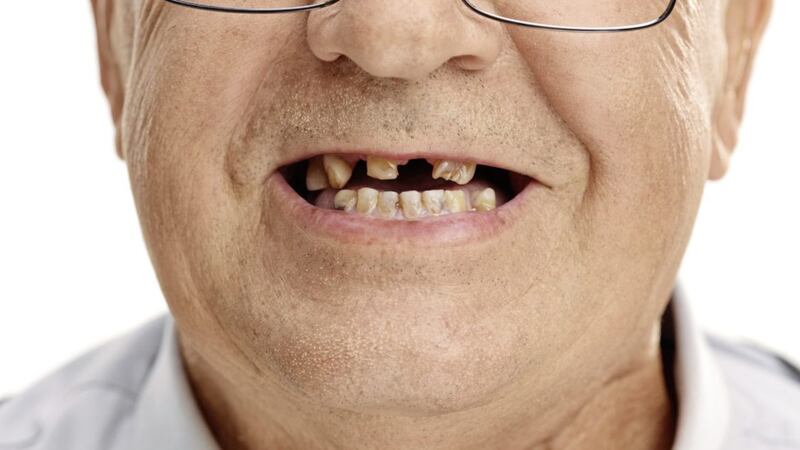KEEPING your teeth can protect your brain function and reduce the risk of getting dementia, according to a new study by NYU Rory Meyers College of Nursing.
In Northern Ireland, on average each adult has lost six teeth and 6 per cent of the population are struggling on with no teeth at all.
There have been many studies linking missing teeth and reduced brain function; however, the exact reason for this is speculation.
Some researchers believe that it's down to not being able to chew as well with less teeth. This leads people to eat a restricted diet as they choose softer foods with less variety.
Consequently, the body doesn't receive the essential nutrients that it needs to operate optimally, and the brain bears the brunt of these nutritional inadequacies.
Other scientists consider it to be down to the cause of the tooth loss. If, for instance, the tooth suffered from bone eroding gum disease for several years and eventually fell out, then the body would have been subjected to harmful inflammation associated with long-term infections.
The inflammation products are thought to spread around the body via the bloodstream ending up everywhere, including the brain, causing damage to any organ that they contact.
There are 200 different types of dementia and in 2014 the Alzheimer's Society reported that there were over 850,000 people living with dementia in the UK. So, understanding the relationship between poor oral health and cognitive decline is important to figure out.
The researchers looked at 14 other studies with over 34,000 participants and they discovered that adults with many missing teeth had a 1.28 times higher risk of developing dementia. So, looking after your teeth better throughout your entire life may reap rewards way beyond a nice smile.
Gum disease is characterised by bleeding, swollen gums and bad breath. If you think you have gum disease, then book a cleaning appointment with the hygienist at your local dental practice; they will show you how to effectively clean your teeth as well.
Nowadays you can book straight in with the hygienist without having to wait to see a dentist. If you are worried about the cleaning being sore, ask to have your teeth numbed up for added comfort.








